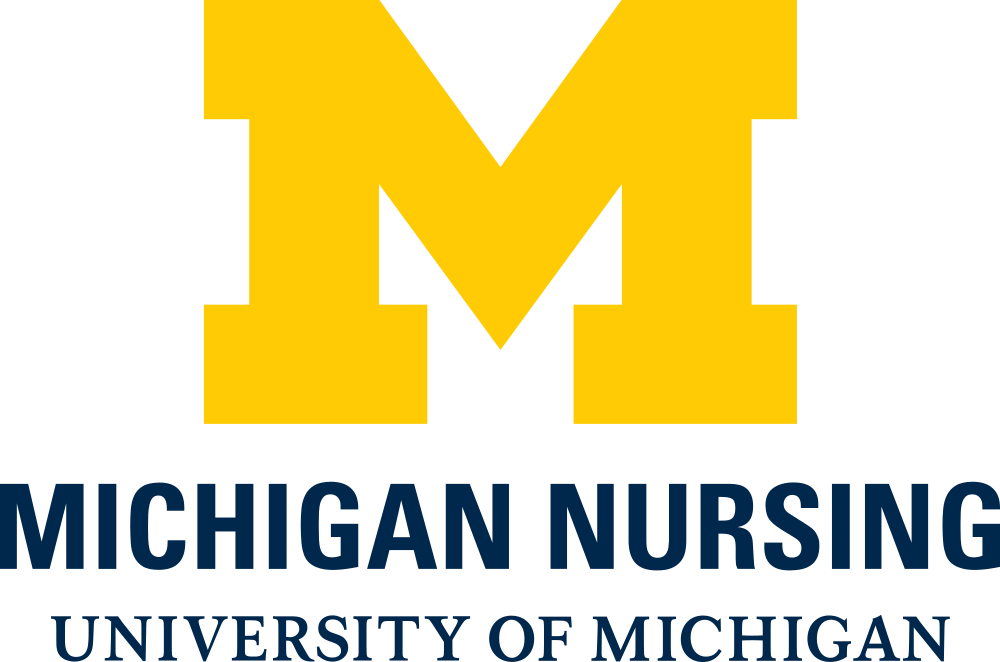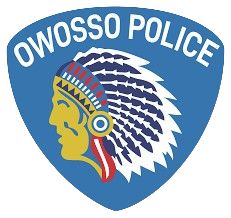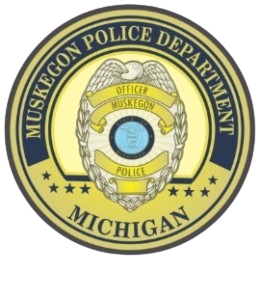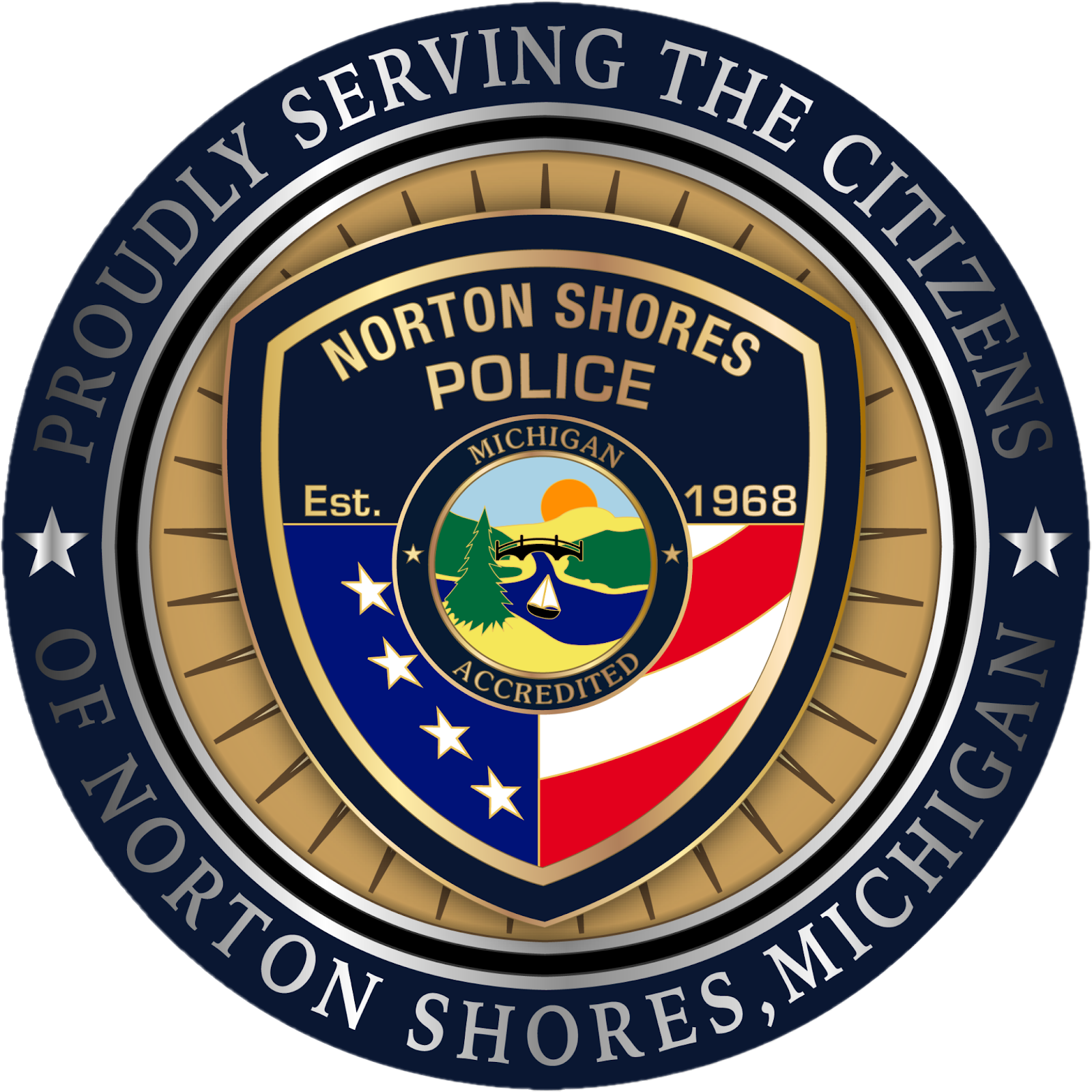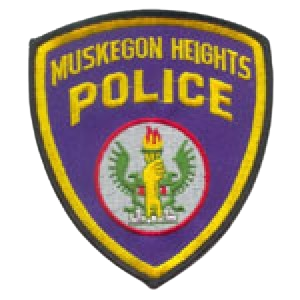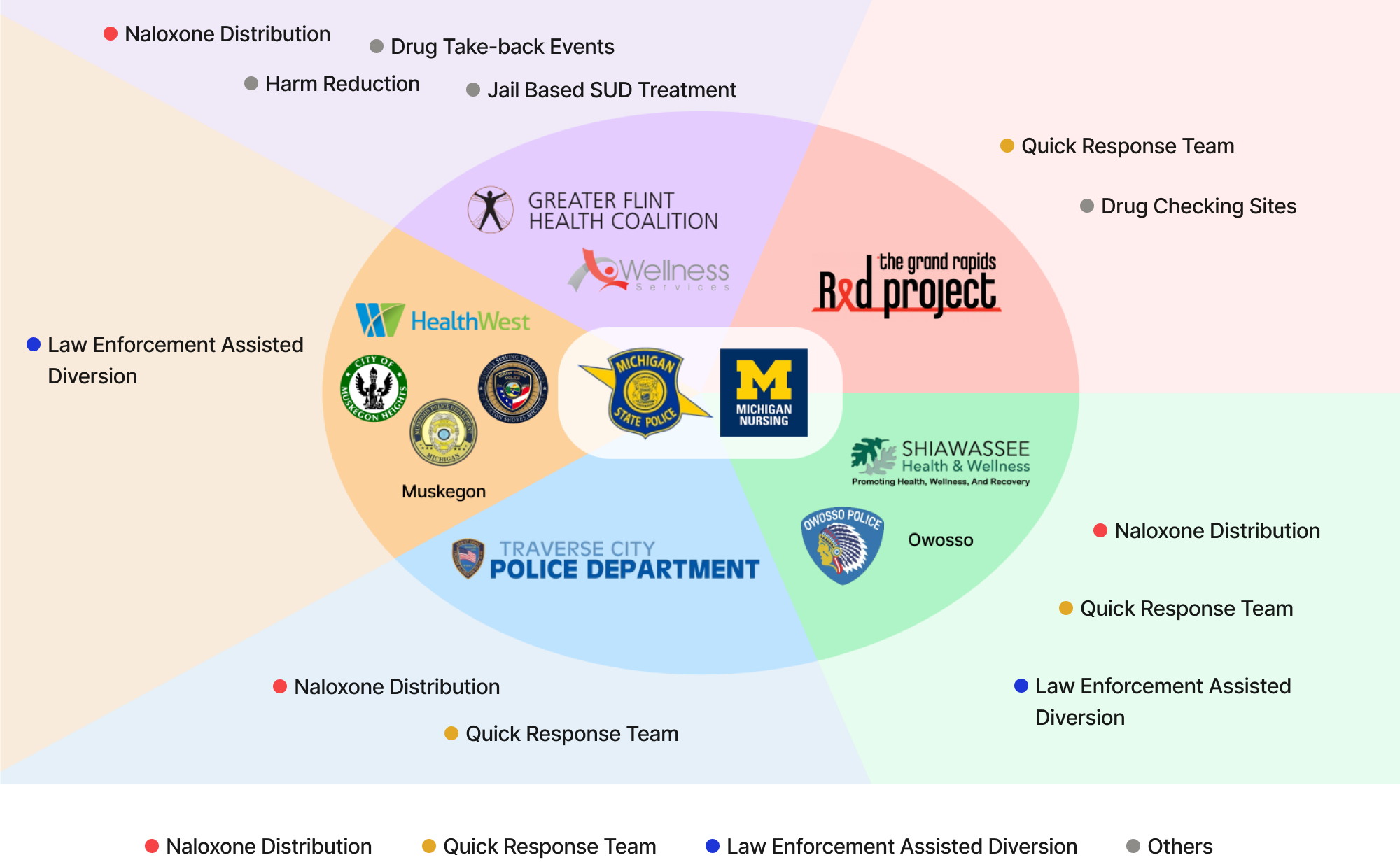
Below is a list of our COSSUP partners and corresponding information on the projects each are supporting. Feel free to reach out to UMSN-COSSAP@med.umich.edu if you have questions or would like to contact them about their projects.

Michigan State Police
The Michigan State Police applied for and won the COSSAP grant through the Department of Justice, Bureau of Justice Assistance. They are responsible for administering the COSSAP grant and work with each local site to coordinate grant contracts, help with program implementation, and ensure compliance with federal grant rules.
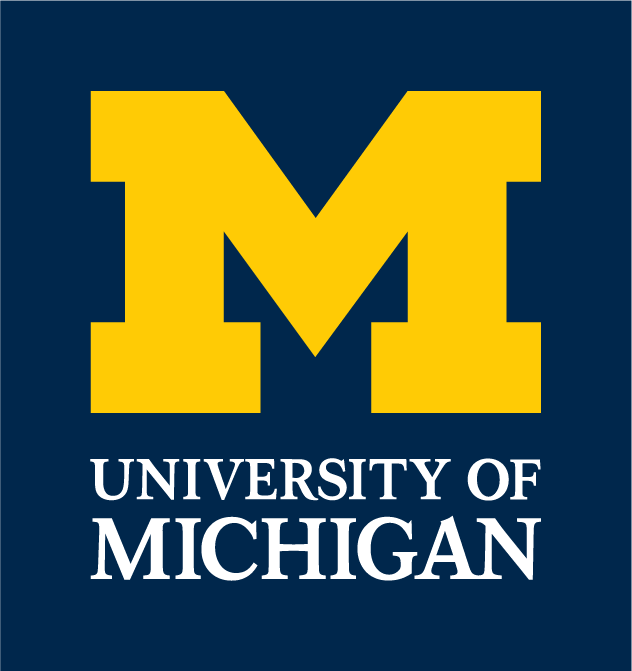
University of Michigan
The University of Michigan is working to evaluate the COSSAP programs implemented at each local site. We have worked with our partners to utilize the RE-AIM methodology (Reach, Effectiveness, Adoption, Implementation, and Maintenance) to identify important and measurable program outcomes. We track program data and provide analysis for each of these outcomes in order to evidence program success and identify areas that could be improved.

Project: Quick Response Team (QRT)
The Traverse City Police Department developed a QRT that moves beyond a reactive model and works to prevent future overdoses.
Individuals can be referred to the QRT for a number of needs including a recent overdose, homelessness, or behavioral health needs.
The QRT works with referred individuals to evaluate their needs and provide access to care and care coordination.
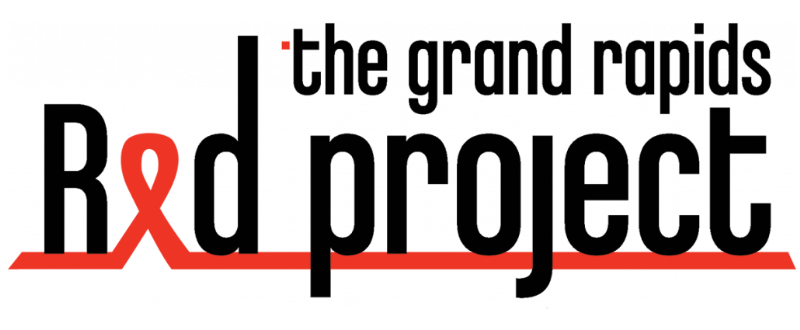
Project: Drug Checking Services (DCS)
The Red Project of Grand Rapids provides drug
checking through FTIR spectroscopy allowing for
identification of multiple substances in a single
sample. Once samples are tested, technicians can
offer harm reduction services, information on substances
found within the sample, and further complementary testing
through the University of North Carolina.
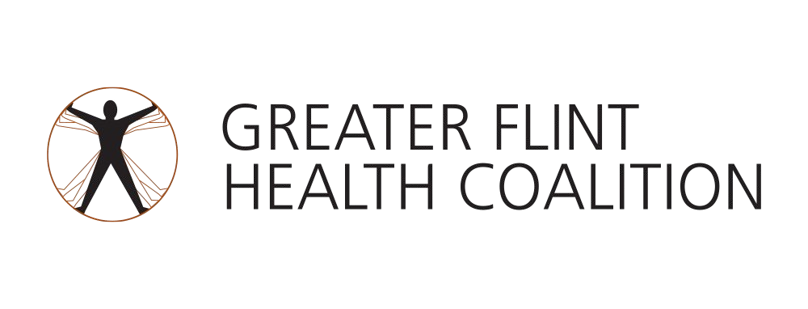
Project: RISE – Peer Recovery Services in Jail
The GFHC is developing the RISE (Reach, Inspire, Serve, Empower) program,
which allows people who are incarcerated at the Genesee County Jail to request
services both during their incarceration and upon release. Services may be related
to their mental or physical health, substance use, or family support.
Project: Quick Response Team (QRT) and Law Enforcement Assisted Diversion (LEAD)
The Owosso Police Department and Shiawassee Health and
Wellness are developing both a Quick Response Team (QRT) and
LEAD Program. The QRT will follow up with overdose survivors to
offer support, harm reduction resources, and access to additional
services an individual may need. The LEAD team will work to divert
individuals struggling with substance use away from the criminal
justice system and into systems of care.
Project: Law Enforcement Assisted Diversion (LEAD)
The Muskegon LEAD (Law Enforcement Assisted Diversion) program is a
partnership between community mental health and law enforcement agencies
and allows officers to divert individuals who commit low-level offenses away
from the criminal justice system. Individuals who enroll in the LEAD program
receive referrals to services and care coordination from behavioral health
clinicians, as well as help from law enforcement and the prosecutor’s office
in relation to their criminal charges.
